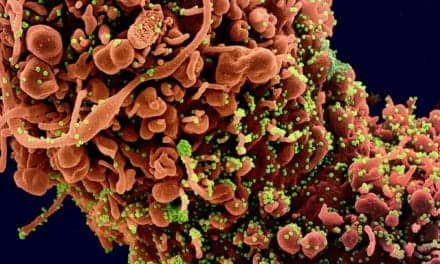A Phase 2 study has begun for a novel first-in-class anti-infective agent to treat severe community-acquired bacterial pneumonia (SCABP). According to Eagle Pharmaceuticals Inc, the study will assess the efficacy and safety of CAL02 administered intravenously in addition to standard of care in patients with SCABP.
The company reports the first patient has been randomized in the trial, which is a multicenter adaptive, randomized, double-blind, placebo-controlled clinical study
According to Eagle Pharma, CAL02 is an investigational, innovative, first-in-class anti-infective agent that acts as a competitive decoy, or lure, for bacterial virulence factors, which contribute to infection-related complications, sepsis, septic shock, and death.
The Phase 2 study plans to enroll approximately 276 patients with SCABP at more than 100 sites in over 20 countries worldwide. The company expects to have approximately 50 sites up and running by the end of September, with 100 sites up by year-end in readiness for the global pneumonia season. In addition, depending upon recruitment rates, Eagle anticipates having its first 50% interim report around the first quarter of 2024.
Severe community-acquired bacterial pneumonia is a worldwide prevalent infectious disease associated with high morbidity and mortality, despite the availability of vaccines, effective antibiotic regimens, and state-of-the-art critical care therapy. CAL02 is a novel first-in-class broad-spectrum anti-virulence agent being developed as an add-on to standard of care treatment of SCABP. CAL02 consists of proprietary, engineered liposomes that capture and neutralize bacterial toxins known to dysregulate inflammation, cause organ damage, and impede immune defense. A Phase 1 safety and tolerability trial in SCABP patients was successfully completed, in which encouraging trends for efficacy were observed. The results were published in The Lancet Infectious Diseases, where accompanying comments characterized CAL02 as “One step closer to precision medicine for infectious diseases,” describing the study as a “medical breakthrough.”
“Owing to the complexity of severe bacterial pneumonia, patients are in need of more effective treatment options. This presents an opportunity to develop a novel adjunctive therapy for SCABP patients. While antibiotics address the bacterial infection, patient recovery is imperiled by the effects of bacterial virulence factors, which can cause immunological and inflammatory responses that may lead to organ failure, sepsis and death,” stated Scott Tarriff, President and Chief Executive Officer of Eagle Pharmaceuticals. “Until now, drugs targeting virulence factors have been limited by the need to know which bug specifically caused the infection. Because CAL02 relies on mechanics common across a vast majority of virulence factors produced by the most common pathogens, we believe it could have broad utility. We believe CAL02 has the potential to elevate the standard of care for severe bacterial pneumonia, and we are delighted to be moving this clinical program forward. While we are currently focused on the U.S., we have a worldwide license, which could result in additional commercial markets for CAL02 in the future.”
“Mortality rates for intensive care unit pneumonia patients remain as high as 40%2 worldwide due to complications that can occur even when tissues are pathogen-free and the lungs are clearing. Virulence factors are increasingly considered to be a common denominator in severe, complicated, and resistant bacterial infections,” stated Dr. Valentin Curt, Senior Vice President, Clinical Drug Development and Interim Chief Medical Officer for Eagle Pharmaceuticals.










